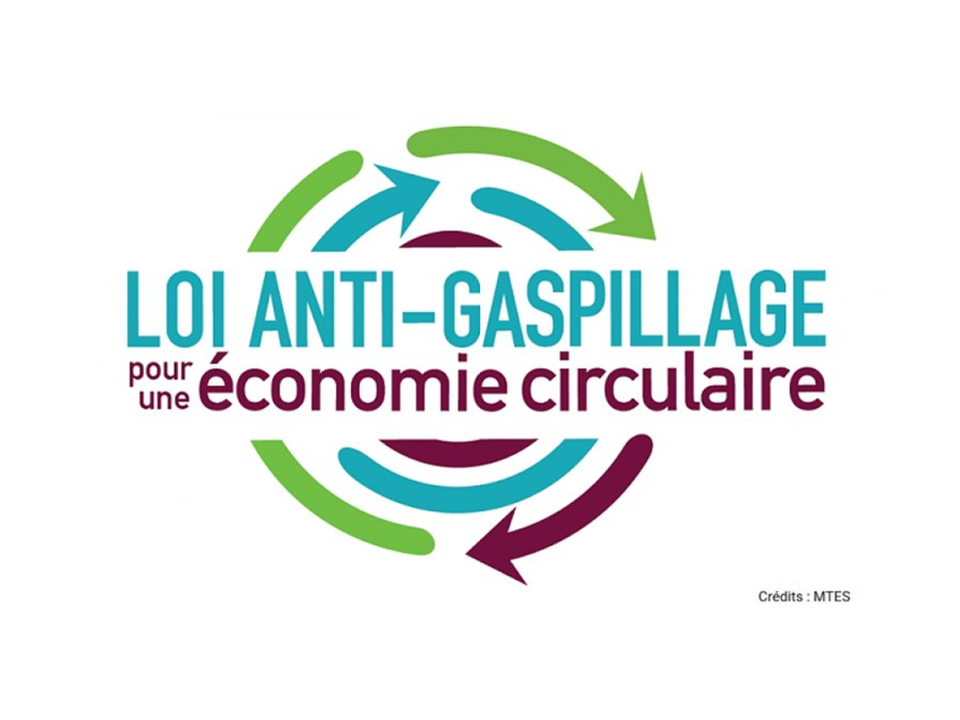Everything you need to know about the Unique Identification Number (UIN)

The French AGEC Law provides for the implementation of a unique identification number for all companies subject to the Extended Producer Responsibility (EPR) principles in order to make it easier to monitor and check that producers fulfil their obligations as marketers.
Why is a Unique Identification Number required?
Since the 1st January 2022 producers are allocated a Unique Identification Number (UIN) for each ERP scheme to which they are subject (EEE, Batteries and accumulators, Packaging, Paper, etc.). This is generated by the French National Agency for Ecological Transition (ADEME) and ensures that any company or entity that is registered with an accredited producer responsibility organisation in France is in compliance with the requirement to be registered in the ADEME’s Producer Register (in France this is a national register).
The validity of a unique ID can be verified by the general public by searching on the ADEME’s website (Syderep - Site in french) in the section provided for this.
How to obtain a Unique Identification Number?
Through your ecosystem membership (directly or via weee EUROPE) we manage all the necessary formalities with the ADEME. No specific action is required on the part of our producer members.
Once we have received the information from the ADEME, we will send the Unique Identification Number for the WEEE scheme by mail.
In the event of registration for another scheme (Batteries and Accumulators, Packaging, Paper, etc.) a Unique Identification Number will also be generated for each of them and sent to each affiliated producer responsibility organisation.
How to join ecosystem ?
To obtain your Unique Identification Number (UIN), you can join ecosystem in 4 simple steps :
What obligations do producers have?
These identification numbers must be included in the General Terms and Conditions of Sale and any other contractual documents given to a buyer. If applicable, they must also be included on the producer’s website.
However, there is no obligation to display this identification number on invoices.
In the event of non-compliance with these obligations, producers expose themselves to penalties provided for in article L541-9-5 of the French Environment Code (in French)
Are you a third-party seller based outside of France but sell directly to an end user?
If so, you have Producer status and must become a member of ecosystem in order to obtain a UIN. ecosystem will send you your UIN once your membership has been completed (contracts signed, declarations and settlement of advance payment invoices and adjustment invoices).
Are you a seller based outside of France but sell to a retailer established in France?
If so, you do not have Producer status. Your client has Producer status and must therefore carry out any formalities necessary with a producer responsibility organisation.
Are you a marketplace?
The French AGEC Law stipulates that a marketplace supports or contributes to waste prevention and management (except if third-party sellers, for whom the marketplace provides support for selling, have already fulfilled their obligations and have sent their UIN to the marketplace).
The marketplace has producer status:
- If it places equipment onto the market under its own brand or imports/introduces equipment. As a Producer it is required to complete declarations on its own behalf.
- For the quantities that it places on the market on behalf of third-party sellers without an UIN: the marketplace is responsible for establishing the declarations and payments on behalf of these third-party sellers who do not have an UIN.
- Comment: If a third-party seller is an ecosystem member, it will have its own UIN and will be responsible for its own declaration for the items its places on the market and for its own payments.
To ensure compliance to the ADEME by its third-party sellers, the marketplace must enter in the register the UIN of third-party sellers for whom it facilitates sales (refer to article L. 541-10-9 of the French Environment Code), the products they place on the market and their 1 for 1 take-back system (“take-back obligations).
Upon request by the producer responsibility organisation or the public authorities, the marketplace must be in a position to send information about producers on whose behalf it completes the declarations. This possibility allows a producer responsibility organisation to ensure that the data declared to it, is consistent in accordance with laws and regulations.
Furthermore, the marketplace must replace a third-party seller who fails to offer a take-back solution to the buyer at no extra cost, as required by law since 1 January 2022 (see article R541-161 for the French Environment Code).